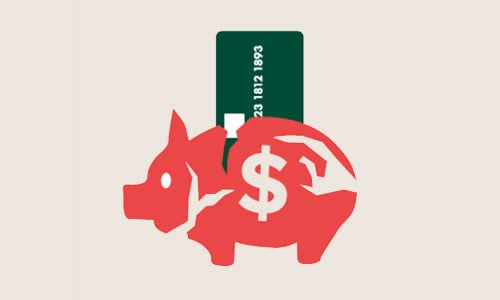Avoid ruining your credit score [Infographic]

A credit score is more than just a three-digit number. It represents your reliability as a borrower and has a profound impact on your future if you're looking to obtain a mortgage, auto loan or a new credit card.
While it may seem a bit unfair, building and maintaining your credit score is more difficult than ruining it. Numerous factors can contribute to lowering your score if you aren't careful when it comes to managing your finances.

Don't miss a payment
To build and maintain your credit score, you must always make your monthly payments on time. The company that helps determine the score, myFICO, stated payment history composes 35 percent of your credit score, and this represents the single most important factor.
If you miss even one payment, your score can drop by almost 100 points. A good way to avoid the severe consequences of missing a payment is to set up automatic bill payments. If you happen to forget about a monthly payment, contact your credit card provider immediately. They may extend the deadline if you have a solid history of making payments on time.
Don't max out
Never max out a credit card, because amounts owed represent 30 percent of your score.
You don't want to find yourself in a situation where you not only ruin your score, but you also have no wiggle room if an emergency arises and you have to rely on credit as a short-term solution.
Be smart when shopping
Whenever you shop around for new credit, your score is affected by at least 10 percent per every application filled out.
Scores are further affected when you open many lines of credit in a short period of time and end up closing them. These will stay on your record for seven years.
The same applies if you have to co-sign for someone else. Doing so will also put the loan or credit card on your credit score, and if the co-signee makes a late payment or misses one, your credit score will be negatively affected.
Length of account
The length of your accounts affects your credit score by 15 percent. Essentially, you do not want to cancel your credit cards too soon because generally speaking, the longer you keep accounts open, the better your score will be.
Many factors contribute to your credit score and it's important to understand how they can ultimately determine that all-important three-digit number.
